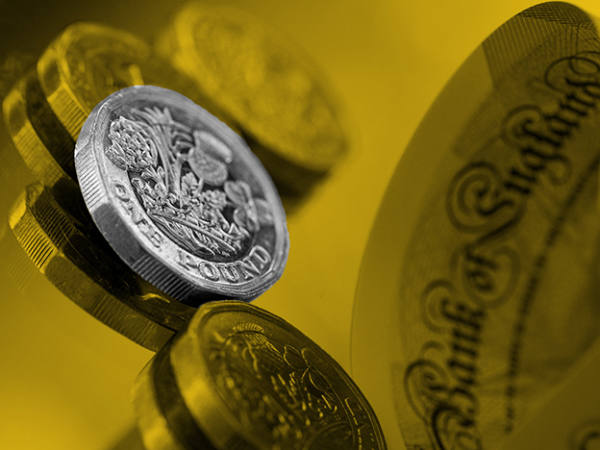The past decade has seen investors flock to the shares of consumer brand companies. They have done so in the belief that the strength of brands will lead to regular repeat purchases by consumers, which in turn will give rise to strong, predictable and growing cash flows. Throw in the fact that such companies tend to be very profitable with high profit margins and high returns on capital employed (ROCE) and you can see why investors have been willing to pay high valuations for the shares of these businesses.
Reckitt Benckiser (RB) has been seen by many as a company that has many of these desirable characteristics. Its Health and Hygiene businesses are stacked full of well-known and established brands that people have bought regularly for years.
Yet RB’s performance in recent years has been disappointing. Its ability to grow its sales from its existing portfolio of brands has been patchy as it has struggled to convince investors that there is genuine long-term growth in its business.
The acquisition of Mead Johnson – an infant and child nutrition business – was an expensive one and remains a business that has yet to move the company’s growth rate into a higher gear, despite an improvement in its recent performance. The deal also slashed the company’s previously impressive ROCE from over 20 per cent to less than 10 per cent.
RB has given a number of explanations for its ups and downs, but could something more significant be the reason? I’m talking about the power of brands or more appropriately the declining power of them.
We have seen in the world of grocery retail the effect that disruptive discounters can have on the sales and profit margins of supermarkets. I think that there is a distinct possibility that they could have a similar impact on some – but not all – consumer health and hygiene brands over the next decade.
One of the big shifts in the retailing world in recent years has been the growth of private-label products and the improved quality of them. Retailers like private label because they can make more money from them, while having a close relationship with the supplier can allow them to have a big role in their development and quality. Customers increasingly like them because they are much cheaper than brands, and in many cases work just as well.
I’ve written recently about the mixed messages that companies with high profit margins can give investors. In one way they can be a sign of a fantastic business that can earn big profits because it can do things that other companies cannot. In other cases, they can be a sign of a company charging its customers too much money. If the company concerned cannot protect itself from competition in the long run, then its profits – and its profit margins – will fall.
For discount retailers, and the likes of Amazon, high margins are their source of opportunity to undercut and win a slice of a market. It’s often difficult for investors to work out who is safe from their advances.
So just how vulnerable is Reckitt Benckiser to the rise of private label substitutes for its products?
At the moment there is not much evidence of it losing out in any significant way, but the warning signs are there. The company is very profitable, with gross profit margins of over 60 per cent and operating margins of just under 27 per cent. These are fat margins in anyone’s book, but they have been remarkably stable in recent years.
A closer look at some of its products and the prices that consumers pay for them in supermarkets shows that they cost a lot more than the private-label alternatives.
RB versus own label
RB product | Price | Tesco own label | Aldi |
Finish Dishwasher tablets 40pk | £0.18 each | £0.08 each | £0.0498 each |
Harpic Toilet Cleaner | £1.34 per litre | £1 per litre | £0.69 per litre |
Gaviscon liquid | £1.50 per 100ml | £0.90 per 100ml | na |
Strepsils 24pk | £0.19 each | £0.07 each | na |
Nurofen tables | £0.12 each | £0.03 each | £0.018 each |
Dettol Surface Spray | £3.50 per litre | £1.40 per litre | na |
Source: Tesco.com & Aldi.co.uk |
As an investor you have to ask yourself how long this can continue. Is the price premium justified because Reckitt Benckiser’s products are much better, or are customers getting bad value for money?
Reckitt Benckiser will argue that its products are a little bit special and do things that basic own-label products can’t do. For example, they clean better, work faster or last longer. My own view, for what it’s worth is that for some of the items in the table this is not true. In many ways, they are commoditised products where private-label alternatives are often just as good.
A switch from a brand to an own-label product tends to happen slowly and accelerates during times of economic hardship, such as recession. However, Reckitt Benckiser’s recent first-quarter trading update can shed some light on what’s going on within the business and some of the signs are not particularly encouraging.
The over-the-counter (OTC) health business, which is dominated by the Mucinex brand that treats coughs, colds and ’flu symptoms, has been very weak due to fewer Americans suffering this year, but also due to an increase in private-label competition. Competition is an issue here that should not be ignored. Why should it not apply to some of Reckitt Benckiser’s other products as well?
Its other health brands in multi-vitamins and Scholl footcare are not growing either, although some, such as Nurofen, Dettol and Gaviscon, are performing reasonably well.
On a more bullish note, the infant nutrition business has continued its recent improved performance. This business has benefited from the launch of new brands in the US market, but is struggling a little in China due to a fall in the birth rate. This is a business that should be resilient to competition as the products require high degrees of compliance to strict standards that is needed to build trust among consumers. This is not something that a private-label producer could copy quickly. But can it deliver sustainable sales and profit growth? This is far from certain.
The hygiene business continues to outperform the health division. Brands such as Finish, Harpic and Vanish are doing well, but Air Wick air fresheners and Lysol disinfectant are seeing sluggish sales growth.
This continued mixed sale performance is unsettling investors and causing Reckitt Benckiser’s share price to lag those of other consumer goods companies such as Unilever (ULVR). How can Reckitt Benckiser turn things around for its shareholders?
I think it’s going to be difficult to do on its own. It will try to grow through innovating with new products and getting consumers to trade up to premium products, but with a large chunk of its portfolio this has proved difficult to do consistently.
It may be that Reckitt Benckiser has to break itself up or merge with another company. The company is in the process of a project that will have its health and hygiene business operating as completely separate businesses, which should be completed next year. This will make it easier to spin off one of them or merge them with a rival’s, as Pfizer (US:PFE) and GlaxoSmithKline (GSK) have done with their consumer health businesses.
It is also possible that Reckitt Benckiser could attract the interest of private equity buyers or even Warren Buffett’s Berkshire Hathaway.
What seems certain is that Reckitt Benckiser needs shaking up. The good news for potential investors is that the price tag attached to its shares looks interesting. At 6,044p, the shares trade on just over 17 times one-year forecast rolling earnings compared with Unilever on just over 20. This discount is justified given Reckitt Benckiser’s lacklustre performance, but it looks potentially good value to someone who may have the ability to get the business back on the right track. If a new chief executive doesn’t do it, then I think it’s very possible that someone else might.
Reckitt Benckiser forecasts
Year (£m) | 2019 | 2020 | 2021 |
Turnover | 12,998.70 | 13,485.40 | 14,006.20 |
Ebitda | 3,785.80 | 3,971.80 | 4,120.70 |
Ebit | 3,442.80 | 3,620.90 | 3,756.20 |
Pre-tax profit | 3,149.00 | 3,372.10 | 3,563.80 |
Post-tax profit | 2,422.40 | 2,601.80 | 2,740.00 |
EPS (p) | 341.9 | 366.2 | 384.8 |
Dividend (p) | 173 | 184.7 | 193.9 |
Capex | 419.6 | 413.7 | 435 |
Free cash flow | 2,336.50 | 2,484.60 | 2,687.40 |
Net borrowing | 9,427.90 | 8,218.40 | 6,923.60 |
NAV | - | - | - |
Like for like sales growth % | 3.4 | 4.1 | 4.5 |
Source: SharePad













